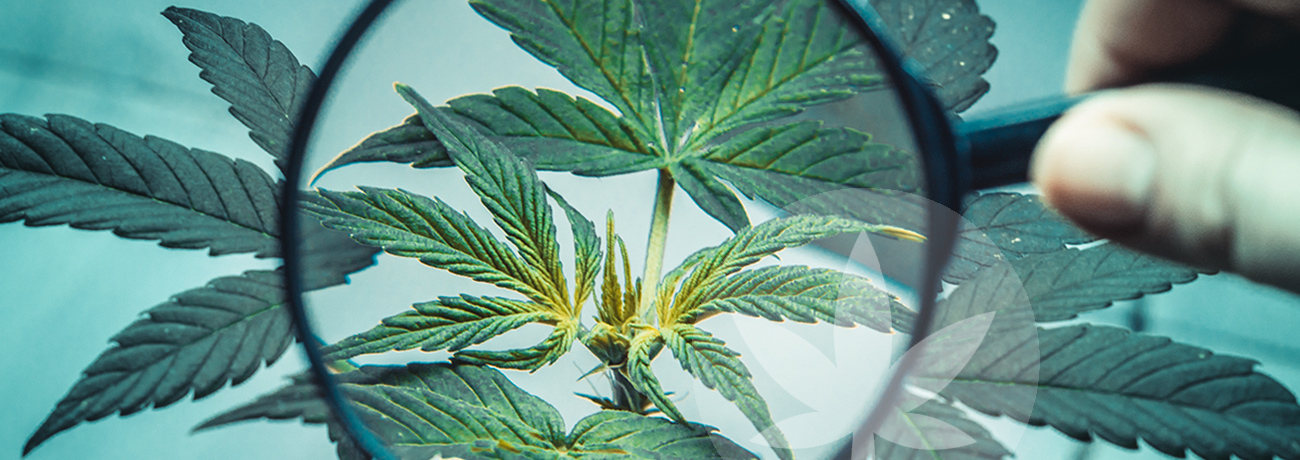Does CBD Convert To THC Inside The Human Body?
Last updated:
Published:
Is it possible for CBD to change and become THC?

Despite the attention this topic is receiving, looking at studies in isolation will not provide an objective conclusion. To understand whether there is a real risk of CBD converting to THC, we need to review all the evidence that has been put forth. Thankfully, the World Health Organisation, a global body dedicated to the well-being of humankind, has collated the relevant information as part of their comprehensive review of CBD.
What studies are there to support both sides of the argument?
Before we review the results, it is worth defining the terms “in vivo” and “in vitro”. The first means that the experiment was carried out inside a whole biological entity. This can include animals, humans, or plants. In vitro, the opposite, means tests were carried out on isolated cells or tissue that was removed from a biological entity.
These two terms play a crucial role in our understanding of the data presented. The concept of CBD’s conversion to THC comes predominantly from studies carried out in vitro—outside of a living body.
Studies conducted in vitro
At present, two studies suggest CBD could convert to THC. The first used simulated gastric fluid, lacking in pepsin, to replicate the conditions CBD would experience when ingested orally. Researchers found that delta-9-THC was present at a conversion rate of 2.9% (CBD:THC).
A similar study was performed at the University of California in partnership with Zynerba Pharmaceuticals. In it, CBD was exposed to gastric fluid without enzymes for three hours. Results showed that after 120 minutes, 98% of the CBD had degraded. The majority of what remained was delta-9-THC and delta-8-THC. The final sample was analysed using chromatography and mass spectrometry to ensure accuracy.
While the results of both studies appear conclusive, CBD exposed to simulated gastric fluid does not replicate the entire process inside a human body. In reality, our stomach acids also contain pepsin and various enzymes, any of which are likely to alter the speed of breakdown and the final compounds left behind. A follow-up commentary was also published suggesting the potential implications of CBD conversion.
Titled “Conversion of Cannabidiol Following Oral Administration”, it implied that the conversion of CBD was an exclusive process, only occurring when CBD was ingested orally. The report also proposed that results from earlier, in vivo studies may indicate that minuscule levels of THC could produce psychological side effects in humans.
The issue with this commentary is that it is not unbiased, as Zynerba Pharmaceuticals supported it. The company is currently developing a transdermal CBD gel, and any results that show adverse outcomes to orally ingesting CBD would prove beneficial to their endeavours.
Studies performed in vivo
Having examined the in vitro studies, we can now explore the results from tests performed using living organisms.
More recently, GW Pharmaceuticals conducted a review of gastric and plasma concentrations of cannabinoids in minipigs. The principle behind the study was the same as the in vitro papers—to identify if CBD does convert to THC when digested. This time, results showed that despite subjects being administered 15mg/kg/day for five days, there was no evidence to suggest the presence of THC in collected plasma samples.
The dose of CBD used was significantly more than in previous studies; it is also substantially more than most human users would need to ingest. The equivalent human dose would be roughly 1000mg a day, far beyond the recommendation of a few drops daily. By using both an excessive dose and minipigs as test subjects, the results can be considered more conclusive.
Minipigs are favoured for studies involving the GI tract because they share a greater similarity with humans as opposed to rat models. By simulating CBD consumption and monitoring the complete digestive process, the outcomes are more aligned with the implications of CBD use in humans. However, it is also worth noting that, again, this study is not entirely unbiased. GW Pharmaceuticals is currently developing oral CBD products.
However, the results from GW Pharmaceuticals do go hand in hand with separate, unaffiliated studies that used human patients. A paper published on NCBI found “no plasma delta-1-THC, the major psychoactive cannabinoid of marijuana, was detected” in patients with Huntington's disease. That was after they had been given a daily dose of CBD. Moreover, a comprehensive review in 2017 concluded: “despite intensive research, we are also unaware of any in vivo conversions of CBD to THC”.
Using the evidence provided, the WHO reached a definitive conclusion
Although the overall picture of CBD converting to THC may seem complicated, the majority of studies performed within living organisms showed no signs of the conversion. Granted, there are areas of scrutiny on both sides, with several papers being published under the guidance of pharmaceutical corporations. However, reviewing these findings alongside more conclusive research, the WHO reached a final verdict.
“Overall, there is no evidence that this transformation occurs in humans after oral CBD administration”. They also go on to add that “there is no evidence of that oral CBD administration in humans results in clinically relevant THC-like effects”.
Until new studies come to light, or more extensive research is carried out, we can safely assume that CBD does not convert to THC when consumed and processed by the human digestive system.








